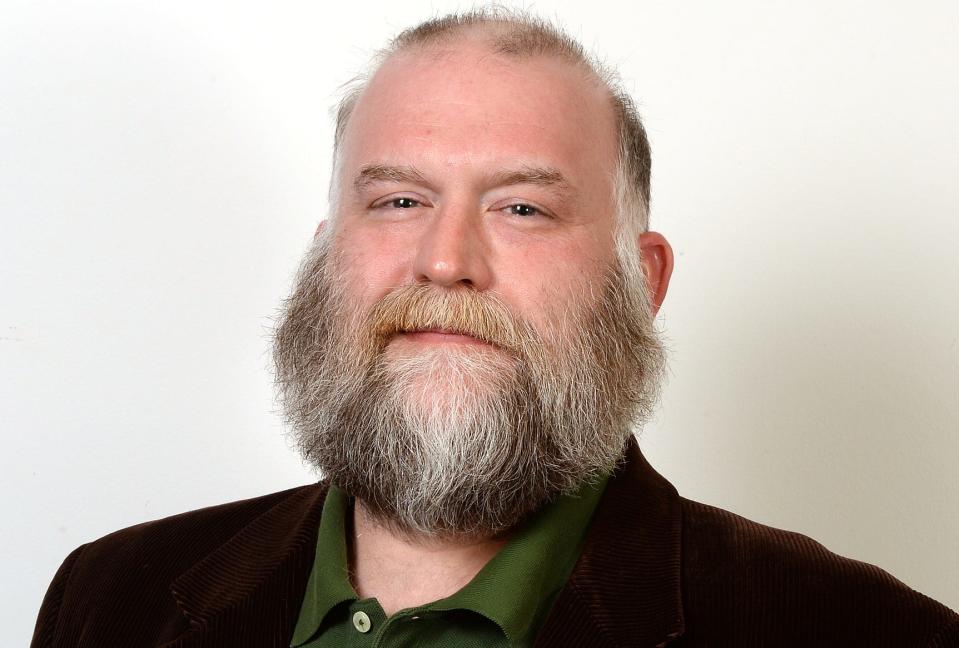David Murdock Column: On Memorial Day and why it's important to remember
In the United States, Memorial Day commemorates members of the U.S. armed died in the line of duty. In the United Kingdom and the Commonwealth of Nations, in addition to other European countries, Nov. 11 ― the end of World War I ― is Remembrance Day. Both Memorial Day and Remembrance Day serve much the same function.
Our Memorial Day has its origins in the Civil War, predating World War I. More Americans died in the Civil War than in all our other wars combined. That’s why we commemorate those who made the ultimate sacrifice on this date rather than Nov. 11, I think. Yes, we commemorate all who served in the U.S. armed forces on Nov. 11, but our Memorial Day is a little unusual in its timing.

Normally, I highlight someone who died in the line of duty for Memorial Day columns, but this year, I want to call to mind a U.S. Army Air Force pilot who survived World War II, Brig. Gen. Clarence “Bud” Anderson.
Two things: before the creation of the Air Force as a separate service in 1947, it was part of the U.S. Army. Anderson thus joined the U.S. Army and retired from the U.S. Air Force as a colonel in 1972. The honorary rank of brigadier general was conferred on him in 2022.
Event: Presentation on Alabama's first WWII casualty to highlight Memorial Day program
I call Anderson to mind because he died peacefully in his sleep at the age of 102 on May 17. I was devastated when I heard the news. Somewhere along the line, I’d become interested in his life and read his autobiography, "To Fly and Fight — Memoirs of a Triple Ace. "
The copy I have is autographed, but I never met him. I ordered it from his website, which is a good resource (toflyandfight.com). There are lots of great pictures of his various P-51 Mustang fighters — all nicknamed “Old Crow” after a brand of whiskey — and background information on members of his unit, which included Chuck Yeager, a close friend.
In fact, I’m sure that I became familiar with Anderson either from reading Yeager’s book or from that P-51. The “Old Crow” is a popular model subject — there’s one on the bookshelf in front of me, in fact.
More: Run For The Wall motorcycle riders make fuel stop in Gadsden
That brings me to another point. Of all Americans who served in uniform during World War II, about 416,800 died in the line of duty (according to the National World War II Museum website). There are about 85,000 U.S. veterans of WW II still living (my sense of various figures around the internet), with 131 dying every day (that number is the same on every website I saw).
I had the privilege to know many WW II veterans while I was growing up. And I listened to their stories. That’s why biographies and autobiographies of WW II veterans fascinate me to this day. Every now and again, I encounter a WW II veteran I’ve never met ― I usually make it a point of introducing myself and asking the basics of that person’s service.
I cannot imagine what these servicemen and women went through, even when they tell me, in person or in print. It’s hard to wrap my head around.
Yet another point about Memorial Day that has always flummoxed me is how it’s lost its meaning over the years. Now, for many people, it’s a long weekend off from work at the end of May. For some, the beginning of the “grilling season.” For others, the unofficial start to summer.
I’m not fussing about these things as much as I’m feeling a ruefulness. Yes, there are commemorations, but as the large amount of veterans fade, our sense of what we memorialize fades.
We must not forget. Even if we remember in some simple way, we must not forget. That’s why I’ve always loved the various cities and towns putting up flags. Flying a flag on Memorial Day is a simple enough action, but it is incredibly meaningful.
I’ve never visited a cemetery on Memorial Day for services. I have usually watched a “war movie” or two back in the day, although that’s not a usual practice for me now. There’s nothing wrong with grilling out or traveling, as long as we take time to remember. After all, “memorial” comes from the Latin word for “memory.”
We are compelled to remember. We cannot avoid it, in some ways. Our world today is shaped by the world that our wars made, especially World War II and the Civil War — our two largest-scale wars. Those who died shaped the way we remember those wars.
More: David Murdock Column: On dreams, stories and conversations about my mother
Sometimes, the memories are on the surface — streets named for battles or the dead, for example. Sometimes, our memories are subtle.
If my mother meant to express distance, for example, she’d sometimes say something was from “here to Chapultepec.” Then, on a high school trip to Mexico City, I got to visit Chapultepec. I had no idea that it was a real place or that there had been a battle there during the Mexican-American War, and neither did Mom.
After I showed her my photos of Chapultepec, where about 750 on both sides were killed, Mom never again used the phrase. I’m just curious how the phrase originated.
We are compelled to remember.
David Murdock is an English instructor at Gadsden State Community College. He can be contacted at murdockcolumn@yahoo.com. The opinions expressed are his own.
This article originally appeared on The Gadsden Times: David Murdock on Memorial Day and how wars have shaped our world

